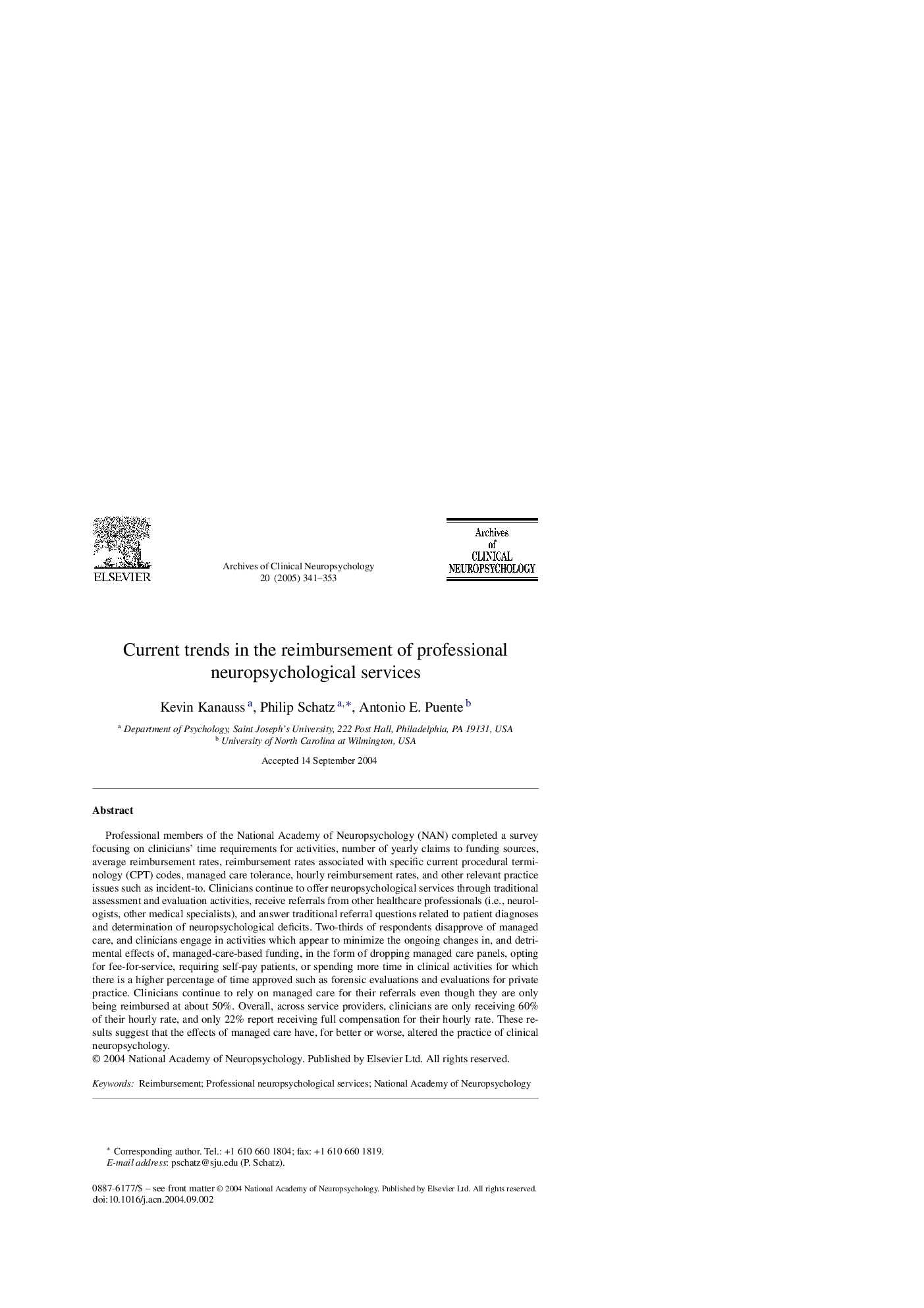| Article ID | Journal | Published Year | Pages | File Type |
|---|---|---|---|---|
| 9719980 | Archives of Clinical Neuropsychology | 2005 | 13 Pages |
Abstract
Professional members of the National Academy of Neuropsychology (NAN) completed a survey focusing on clinicians' time requirements for activities, number of yearly claims to funding sources, average reimbursement rates, reimbursement rates associated with specific current procedural terminology (CPT) codes, managed care tolerance, hourly reimbursement rates, and other relevant practice issues such as incident-to. Clinicians continue to offer neuropsychological services through traditional assessment and evaluation activities, receive referrals from other healthcare professionals (i.e., neurologists, other medical specialists), and answer traditional referral questions related to patient diagnoses and determination of neuropsychological deficits. Two-thirds of respondents disapprove of managed care, and clinicians engage in activities which appear to minimize the ongoing changes in, and detrimental effects of, managed-care-based funding, in the form of dropping managed care panels, opting for fee-for-service, requiring self-pay patients, or spending more time in clinical activities for which there is a higher percentage of time approved such as forensic evaluations and evaluations for private practice. Clinicians continue to rely on managed care for their referrals even though they are only being reimbursed at about 50%. Overall, across service providers, clinicians are only receiving 60% of their hourly rate, and only 22% report receiving full compensation for their hourly rate. These results suggest that the effects of managed care have, for better or worse, altered the practice of clinical neuropsychology.
Keywords
Related Topics
Health Sciences
Medicine and Dentistry
Psychiatry and Mental Health
Authors
Kevin Kanauss, Philip Schatz, Antonio E. Puente,
